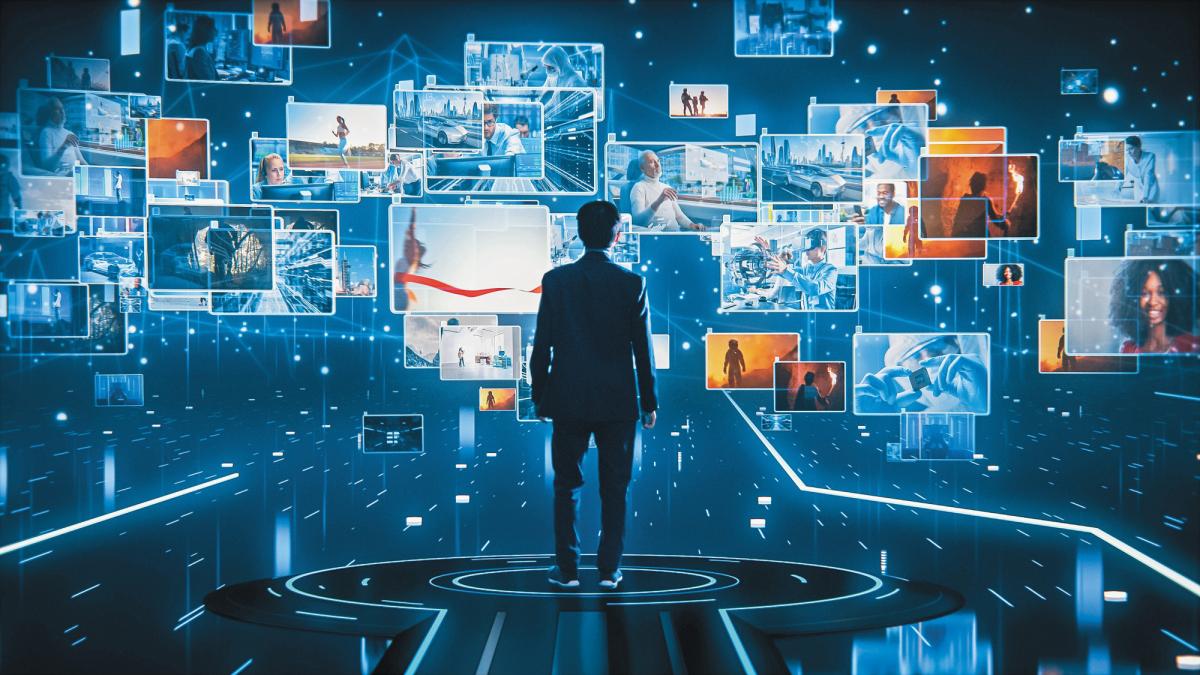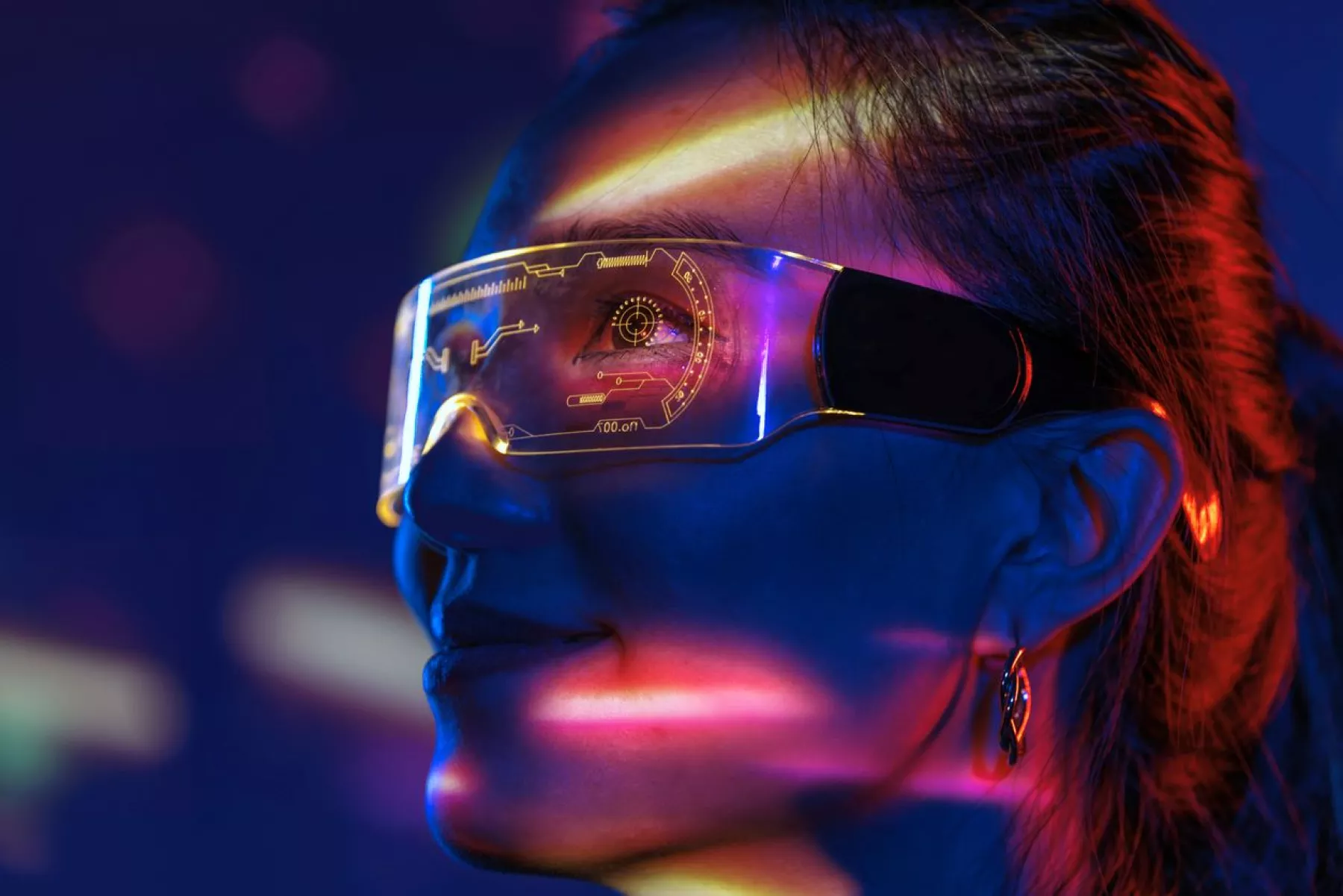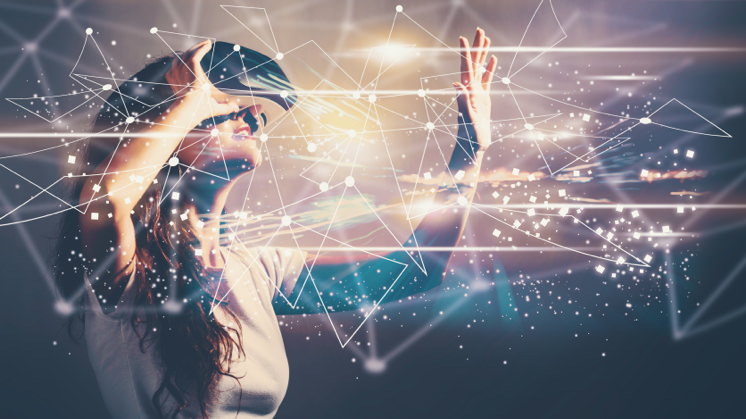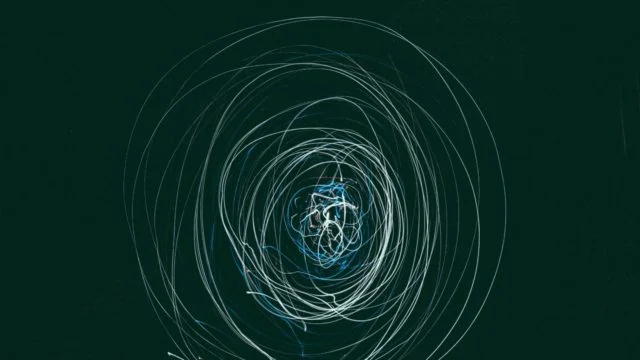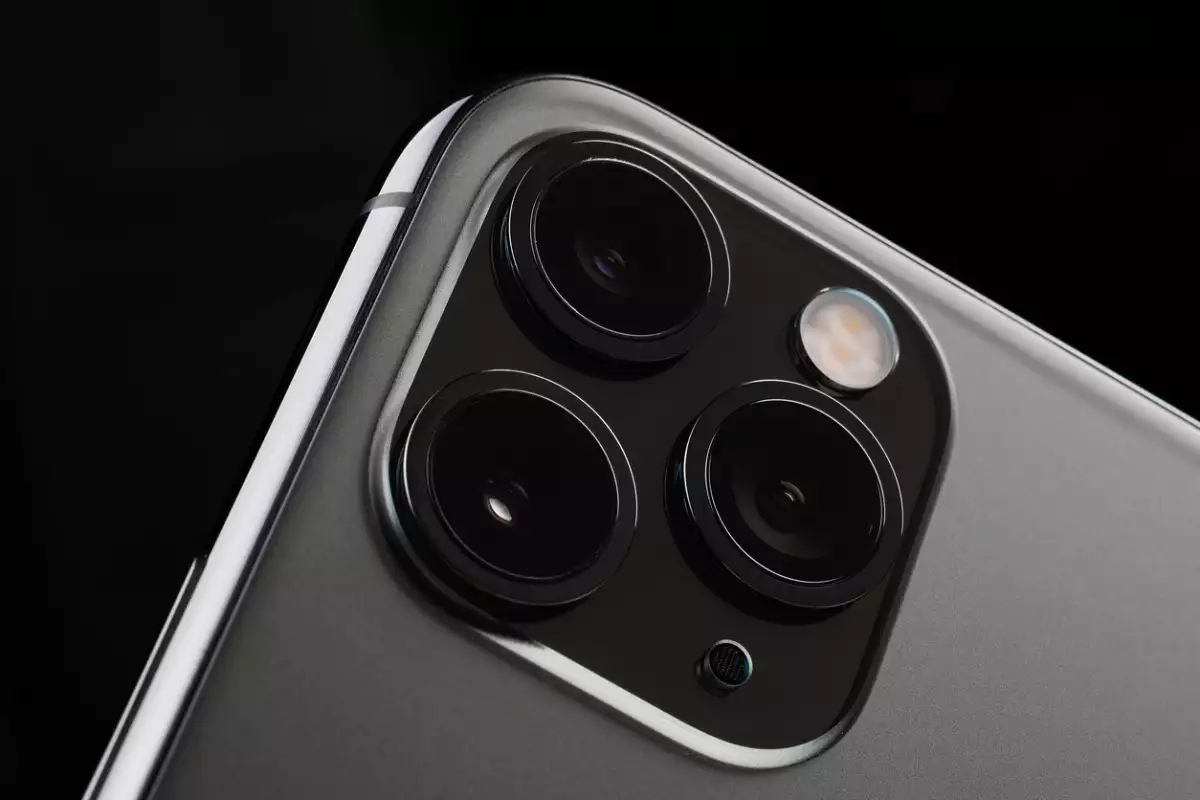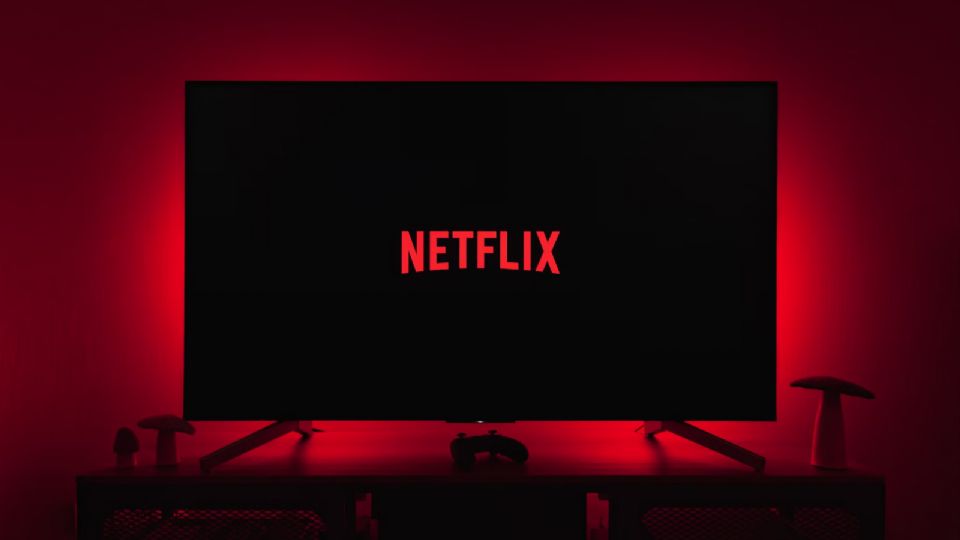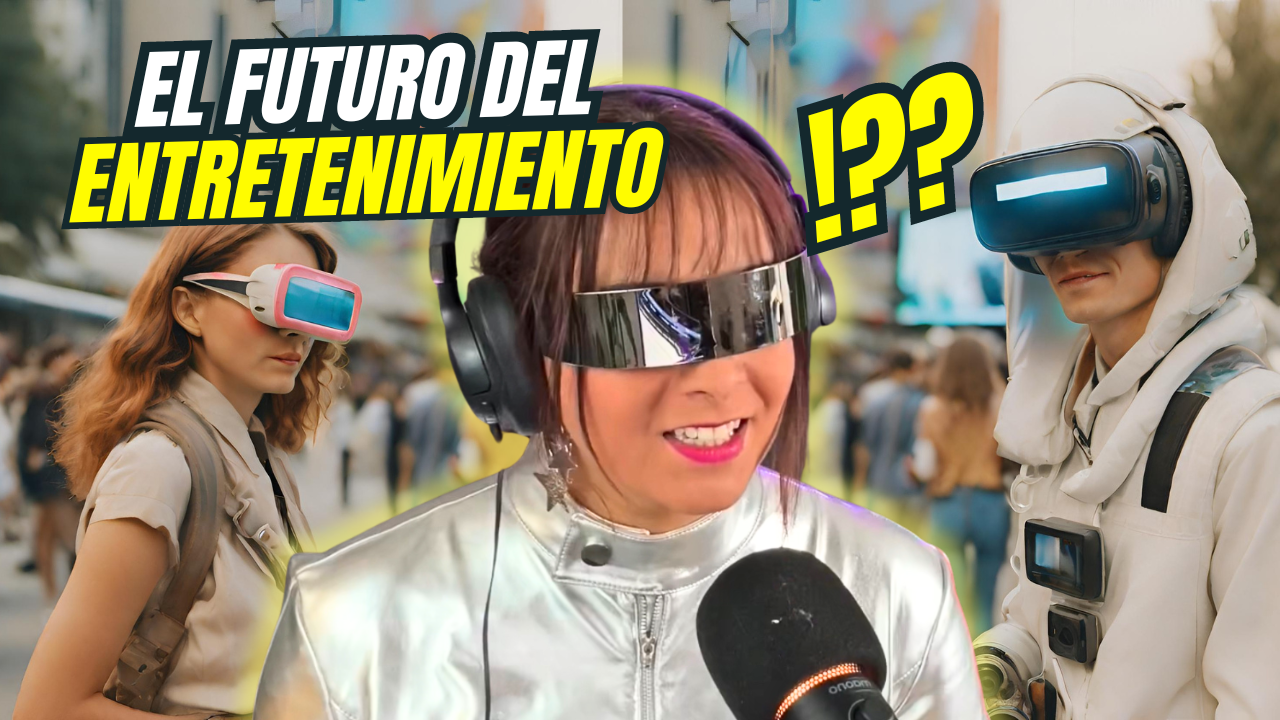
The future of entertainment
The world of entertainment is booming thanks to the magic of digital platforms. We are no longer limited by time and distance
Have you noticed how we have transformed the way we enjoy things? Concerts are no longer just about the crowd and live music; you can now watch your favourite artists streaming from anywhere in the world. Cinema and television are much more than just movies and series; they are entire worlds that you can explore in virtual reality, for example. Sporting events are an online experience that allows you to feel like you are in the stadium, without queuing for the toilets.
And of course, video games are a whole other universe. Games aren't just games; they're interactive worlds that you can explore and conquer. Metaverses are taking immersion to a whole new level.
And this is just the beginning.
But what about the future? What will content consumption look like in the years to come? I can imagine a sound experience where you are completely immersed in the narrative, as if you were inside the story. Put on your headphones and get ready to experience entertainment in a way you never imagined.
Privacy and Legal Consequences: A key point is when Joan tries to sue the streaming company, but discovers that she had given up her image rights by accepting the terms and conditions of the service, a common practice but often ignored by users. This twist emphasizes the importance of privacy and the lack of awareness about legal agreements in the digital world.
Technology and Reality: The episode explores how the streaming company uses Joan's personal information obtained from social networks and connected devices, processed by a quantum computer. I think it's the first time I've seen the real use of quantum computing on TV, where we know that data about all things can be processed at the same time, in this case all the lives of all the users. And it also highlights current concerns about mass data collection and its use.
Joan is horrible, just one episode in a fictional scenario that raises profound questions about the future of privacy, ownership of personal data, and how large corporations might use this information.
It presents a less optimistic future, but quite realistic because we are not far from this, where the distinction between real and digital life becomes blurred, especially with the advancement of technologies such as deep fake with artificial intelligence and quantum computing.
And touching on the first topic about challenges in the entertainment industry. Actors and screenwriters face ethical and legal challenges related to the use of their image and creations, especially with the rise of technologies such as deep fakes. Companies are experimenting with these technologies to create content, raising questions about copyright and authenticity.
On the other hand, we know that with all the money that concerts make these days, they are already bringing back to “life” (I say this in quotes) artists like The Beatles or the ABBA Voyage show, which takes you back to the youth of this group and is a 100 percent digital concert. But let’s see what is going on behind ethical issues like reviving the dead. If it is serious, look at this example: A Volkswagen advertisement in Brazil uses Artificial Intelligence to recreate the deceased singer Elis Regina, singing alongside her daughter Maria Rita. The technology allows Elis Regina to appear driving and singing in the advertisement, which has generated an ethical debate, even though her daughter has given legal permission. While some viewers found the recreation emotional and an appropriate tribute, others expressed concern about the ethics of using the image of a deceased person in a fictitious commercial context. Glauco Arbix, a sociologist and coordinator of the Artificial Intelligence Center at the University of São Paulo, points out that this practice sparks debates about the psychological effects and the need for consent.
The non-transparent or uninformed use of AI, especially in the recreation of deceased persons, entails significant risks. It could lead to misinterpretations, false statements, and ethical and liability issues, which underscores the need for clear regulations in this area.
Another example is in the film “Rogue One: A Star Wars Story”, where Carrie Fisher “Princess Leia” was digitally recreated, which has also sparked ethical debates. These examples in the entertainment industry highlight questions about the use of AI to represent deceased people in fictional contexts.
Volkswagen’s announcement represents a significant example of how AI can trigger a broad ethical and legal debate in advertising and entertainment, highlighting the need for a balanced and regulated approach in its application.
One point in favor that I give to technology in entertainment today is the power that today entertainment can already be accessible and inclusive. As for example at the Coldplay concert where they implemented a special initiative for visually impaired fans. At some of their concerts, the band provided special vests designed for blind or vision impaired people. These vests, often referred to as “haptic vests” or “sensory vests,” are equipped with technology that allows users to feel the music through vibrations.
This technology transforms sound into vibrations, allowing users to experience music in a unique way. The vibrations vary according to the intensity and rhythm of the music, providing a rich and immersive sensory experience. This type of technology not only enhances the concert experience for people with visual impairments, but is also appreciated by people with other disabilities or even those without disabilities, as it offers a novel and different way to experience music.
Coldplay have been praised for their inclusive approach and for looking at ways to make their concerts accessible and enjoyable for all their fans, regardless of their physical abilities. This initiative is just one example of how artists can use technology to improve accessibility and create more inclusive experiences for their fans.
Now let's change the subject a bit because I can't talk about the future of entertainment without talking about video games. Today they are a bigger industry than cinema. It suggests that they will take up consumers' time in other ways and will be the fundamental platform for other media and non-media experiences becoming an ever-increasing part of our daily lives. (complete video games
Entertainment includes sports, in fact if you allow me in another season maybe I will talk about the future of sports, but an example of how it is evolving is simply with the Kings League. For those who are not in context, the Kings League, founded by Gerard Piqué, is a 7-a-side football league that has started its second edition. This league includes influencers and former players as team owners, and its matches are broadcast via streaming. The league incorporates distinctive rules, such as the use of special cards that can alter the course of the game. And more rules that unite the world of video games, board games and football.
I particularly use the Kings League as an example because it is another entertainment format that is now a reality and has responded to the needs of users: the decrease in interest in traditional 90-minute matches, because we already know that our attention span from social networks is short and immediate. So, although I don't know for the future, nor do I believe that Kings League will be the solution in 20 to 30 years, it is a clear example that the future of sports does lie in a new type of renewed sporting spectacle.
Another example is the series Alter Ego: Invisible Intelligence, which premiered on RTVE Play on November 7, 2023. It is a documentary series that explores the present and future of Artificial Intelligence. The series seeks to answer the questions and concerns raised by artificial intelligence. In three episodes, it chronicles two possible and opposite futures for humanity, based on real data and expert opinions. The series, which balances scientific rigor and entertainment, addresses Artificial Intelligence from utopian and dystopian perspectives. 'Alter Ego' delves into the debate about whether AI can follow ethical patterns, understand us better than our families, or even govern. With expert testimonies and an aesthetic that combines color and 2D animation, the series also experiments with AI in voiceover and animation. 'Alter Ego' invites us to reflect on the coexistence between humans and superintelligent machines, between 2023 and 2033, exploring how AI could improve our lives or represent a threat to the future.
But you already know that I like to talk about what's coming in the future and the future of entertainment is of course in technology but it is above all in the use that we, the users, give it and that's where everything is going to change, the future of entertainment will be for platforms, whether physical or digital, that know how to give 100% customization to your entertainment space, generalist platforms will not work. Look, I'll give you a current example with Tik Tok. Today TikTok works because the algorithm, which also has a lot of artificial intelligence behind it, knows what you want, knows what you watch and knows what you play, the same with your favorite series and now imagine this to the fifth power where it will be with any entertainment space for you.
In fact, it is happening in music and with creators. I am sure that you have a younger cousin, friend or acquaintance who tirelessly admires a personality and you have never heard of this personality in your life, and you look for her and her videos have millions of views and millions of followers. It is exactly that, that entertainment for this young girl is totally different than for you. And surely the same thing happens to this young girl but the other way around.
What I'm sure of is that with so much content out there today, what's going to be important in the future for entertainment consumption is really going to be how much of a human experience am I getting, from is what I'm watching human? Or is it made by a machine? Am I touching something real? Or am I having a more immersive experience. The more technology there is, the more we're going to have to emphasize the human. Crazy, right?
Technology is advancing in leaps and bounds, and with it, our forms of entertainment. I'm excited about the creative possibilities in the future. I'm excited that the future of entertainment has so much to offer us.
A trend that I 100% see in the future is the combination of education with entertainment or another modality, for example while I'm streaming Hogwarts Legacy I'll give you a storytime, I'll tell you a topic from world history, whatever you want, you can even put makeup on me while I give you the news of the day, the combination of totally different activities IS something that I see coming very strong. This on different platforms like Twitch, and with a new generation.
In the coming years we will have more capacity to produce content, and Artificial Intelligence will obviously be there to help us with the most boring processes. Today there are already AIs that can help you edit videos more quickly.
The future of entertainment is being redesigned and I'll explain it to you here in a simple way: it's like a big cocktail shaker where technology, changes in what we like and what we want to see come together. Now, diversity and representation are super important. People want to see stories that are like a mirror of their own lives, with characters that reflect their ethnic, cultural and gender reality. And entertainment companies are putting more of these stories on the table.
But it's not just passive viewing. Now, with things like video games, people want to have a say in what they consume, to be part of history. And we're also more concerned with issues like caring for the planet, social justice, and being connected to what's happening in the world. All of this is changing how movies, series, games, and all kinds of entertainment are made.
Creativity is also going into overdrive. Imagination has become the most valuable thing for a creator. We are seeing immersive worlds and stories that can be changed to whatever we want, that captivate us in ways we never imagined before.
Although there is so much entertainment on offer that it can sometimes seem like too much. From the usual platforms that are making remakes to the new ones that bring things that don't always hook us. But the good thing is that there is something for everyone: from the nostalgic to the most innovative. So, in short, entertainment is in a stage of impressive transformation, where what counts is connecting, representing and flying with the imagination.
Leave a comment:


Tranding News
